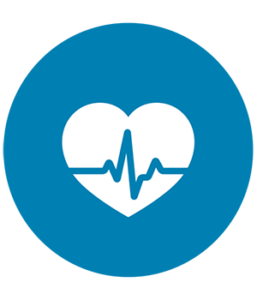Gratitude May Be the Key to Addiction Recovery
Taking time each day to be grateful reminds people in recovery of the good around them and how to think positively. Indeed, recovery can be challenging intermittent explosive disorder symptoms and causes if you do not have the right resources around you. These include friends, family, and a community of people committed to your treatment.
But if you take a step back and focus on the best in others, it can help you feel more grateful for the people in your life. Try to see the good in your friends, family, and co-workers, and let go of any resentment or anger you may be holding onto. For those in recovery, maintaining gratitude can help reduce risk of relapse, promote a positive mindset, and act as an important tool in managing difficult emotions or situations. But if you’re in early recovery or beyond, it’s that much more important. Gratitude doesn’t just happen, but it can be easy to develop, just by being mindful as you move through daily life. Creating a “gratitude practice” starts with simply paying attention to good things large and small – and tools such as journals, lists or meditation can help.
- They then asked another group to write about the daily irritations or things that had displeased them.
- Gratitude can be practiced anytime, anywhere – and it doesn’t cost a penny.
- Sometimes, writing a gratitude letter can seem daunting, especially if you have trouble putting your feelings into words.
A gratitude journal is basically like the intervention used in the study above. Just write down three things you felt grateful for that day or that week. The study above asked participants to write once a week for 10 weeks but you can probably speed things worth the read up by writing every day for the first couple of weeks. Doing this exercise right before bed can help put you in a positive frame of mind, which the study on gratitude and sleep cited above indicates can give you the added benefit of better quality sleep.
Try gratitude breathing exercises
So too is the air we breathe, clear water from natural springs, fruits, nuts, roots, and grains given to us by the earth. Humans are newcomers on earth, wholly dependent on its freely given bounty. Gratitude begins with becoming fully aware of our dependence on these gifts. Like recovering alcoholics and other drug addicts, we need to “make a decision” to embrace the reality of our dependence on the natural world.
Gratitude Helps Recovery
The key is to not let the bad days take over or become too frequent. Many times people think, sure but I can’t control what goes on around me and what others do and say. And while this is completely true, what we can control is our thoughts. Mistakes can and do happen – sobriety slips, resolutions are broken.
Again, feeling grateful can can help you stay optimistic when things get tough. Attitude of Gratitude is a term first developed by Alcoholics Anonymous and used throughout most 12-step programs. It’s also moved into non-AA treatment and often into everyday life. This is extremely helpful to recovering addicts, because Gratitude can translate in many ways, from being thankful and appreciative to actively going out of your way to show appreciation. Practicing gratitude is more than just mailing a thank you letter. To practice daily gratitude means viewing the world through a lens of appreciation.
Ways to Have More Gratitude in Recovery
I have been thrown into turmoil over what I can personally do to practice gratitude for all earth has given me throughout my 78 years. After some thought, I have made a decision to serve the songbirds I remember being so plentiful when I was young but have become so much rarer now. As a child I remember the golden finches, redwing blackbirds, Baltimore orioles, and bobwhites that sang through the woods.
These feelings are essential during a time when things may feel beyond one’s control. It may also help individuals view recovery as a challenge that will help them grow instead of as an obstacle that could overtake them. So, what does any of this have to do with recovery from addiction? Although different for everyone, SUD recovery tends to be a challenging portion of one’s life.
The Importance of Expressing Gratitude During your Recovery
By expressing thankfulness for everything you have in your life, you can begin to see the glass as half full rather than half empty. Additionally, gratitude has been linked with increased resilience, better sleep, and improved physical and mental health. So, if you’re looking for a way to boost your recovery, start by practicing gratitude. On the other hand, gratitude can also arise more outwardly towards others who have helped in your recovery process. Developing an attitude of gratitude comes easily for some and for others takes some practice and habit-building. However, no matter how you come by it, practicing gratitude in your daily life can transform it from one of doom and gloom to one of peace and joy.
Get you or your loved one help for addiction or mental health issues today. Most people tend to be happier and more satisfied with life when they contribute to others and help them with their own lives. This applies whether you’re volunteering to help others, doing things that make your friends and family happy, or working in a way that contributes to your community and surroundings. Volunteering actually triggers the reward system in your brain, causing you to feel happier and more satisfied.
The Importance of Showing Gratitude in Addiction Recovery
Although it would feel great to celebrate and be grateful for big wins every day, it isn’t realistic for most people. Gratitude shouldn’t only be practiced when something amazing happens, like receiving a job offer at your dream career or seeing a long-distance friend. These things certainly deserve celebration and appreciation, but so does the small stuff! You can be grateful for minor occurrences as long as they make you happy.
Using a bulletin board or poster board put pictures, graphics, or words that help you remember what you’re grateful for in life. For example, putting a picture of your dog or children on the board will remind you each day that they are both things in life to be grateful for on a daily basis. However, if you are able to take that negative event and laugh it off or just forget about it, the day often turns around and is a good one.
Ten people tell you it looks great and one person tells you it looks stupid. Most of us will remember the one person who said it looked stupid. Practicing gratitude alcohol withdrawal and detox is a way of pushing against our natural tendency to dwell on the negative. Gratitude is a kind of emotional glue that helps positive things stick in your mind.
Gratitude allows for humility and truth and hope, key essentials for anyone looking to recover from drug or alcohol addiction. Research confirms what those in recovery have long known – gratitude leads to a greater sense of well-being, happiness, and life satisfaction1. It is easy to understand why these traits would be important in long-term recovery.
This will make your relationship with people around you healthier. When you practice positive thinking, your mind will hold on to less negative thoughts like bitterness and guilt. Overall, your recovery journey would be much easier, and you just might have some fun along the way. Now, gratitude has proven to be one of the primary keys to alcohol addiction recovery. Apart from helping you overcome addiction, being grateful has many benefits.

